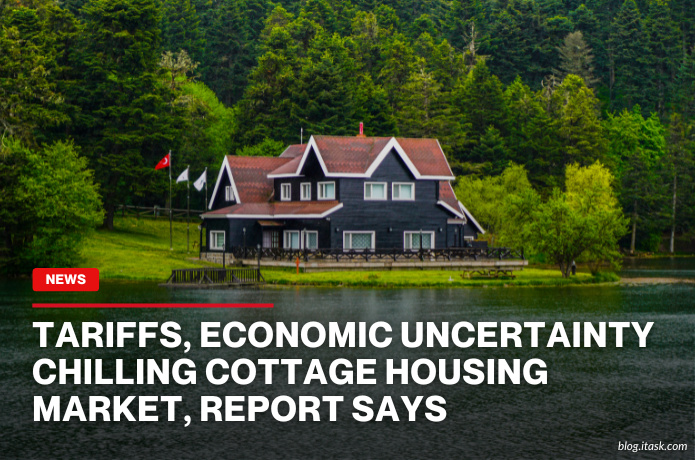Tariffs, economic uncertainty chilling cottage housing market, report says
Tariffs, economic uncertainty chilling cottage housing market, report says

A new report from Re/Max Canada warns that rising tariffs and growing economic uncertainty are putting the brakes on Canada’s cottage housing market. In a survey conducted in March, 59 per cent of respondents said their confidence in buying a cottage was lower than it had been last year. The shift follows a period in 2024 when lower borrowing costs and better affordability briefly boosted interest in leisure homes.
Re/Max Canada’s president Don Kottick said that the market cooled “when they started having these trade discussions.” He believes demand hasn’t disappeared. Many potential buyers are simply pausing until there’s more clarity in tariffs or a stable trade deal with the U.S.
Across Canada, cottage sales aren’t expected to fall nationwide. Most recreational markets may see flat activity or small gains — around 0–10 per cent — with prices expected to rise at a modest national average of about 1.8 per cent in 2025. But some regions are already seeing softness, while others hold firm.
In Ontario, the report says markets are “more or less paused,” as buyers and sellers await signals on the broader economy, including job stability. Some areas have seen prices drop by 1–20 per cent year-over-year, such as Niagara-on-the-Lake and Peterborough County. However, tight supply in places like Muskoka, Kawartha Lakes and Prince Edward County has helped prices there stay stable or even grow.
Experts say luxury cottage markets, like Muskoka, have held strong because buyers there tend to be wealthier and less sensitive to short-term changes. Carrie Lysenko of Zoocasa notes that these buyers view cottages as investments and are less swayed by uncertainty in the economy.
Looking ahead, the report says a rebound is possible if trade tensions ease. More Canadians may choose local vacation homes instead of buying in the U.S., putting pressure on domestic markets. Still, affordability remains a key concern — 57 per cent of survey respondents said being able to afford the purchase is essential.
